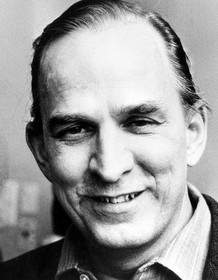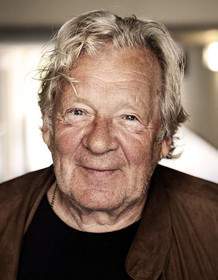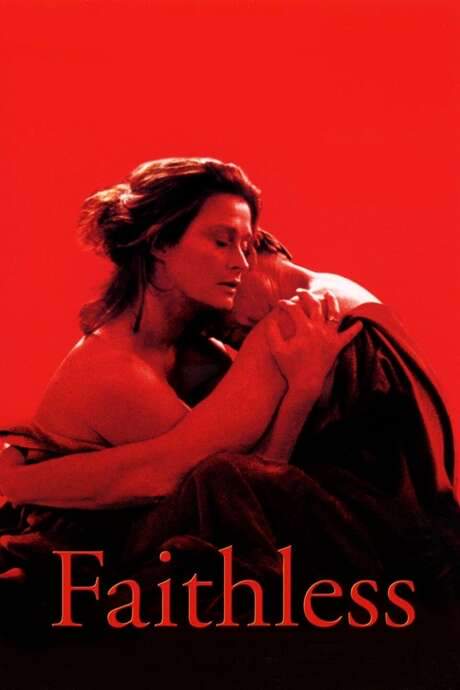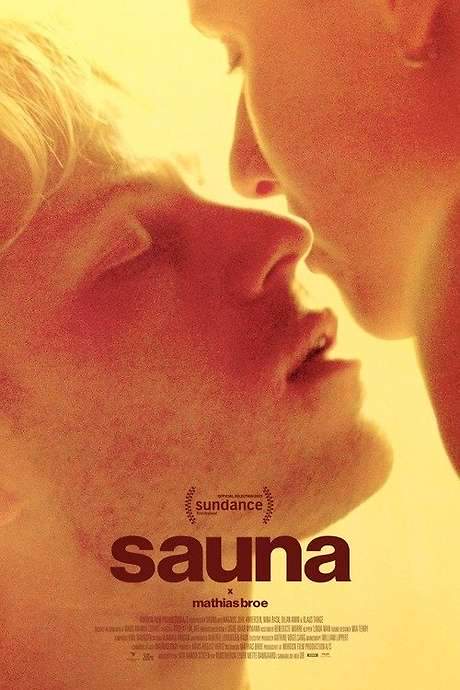Saraband 2005
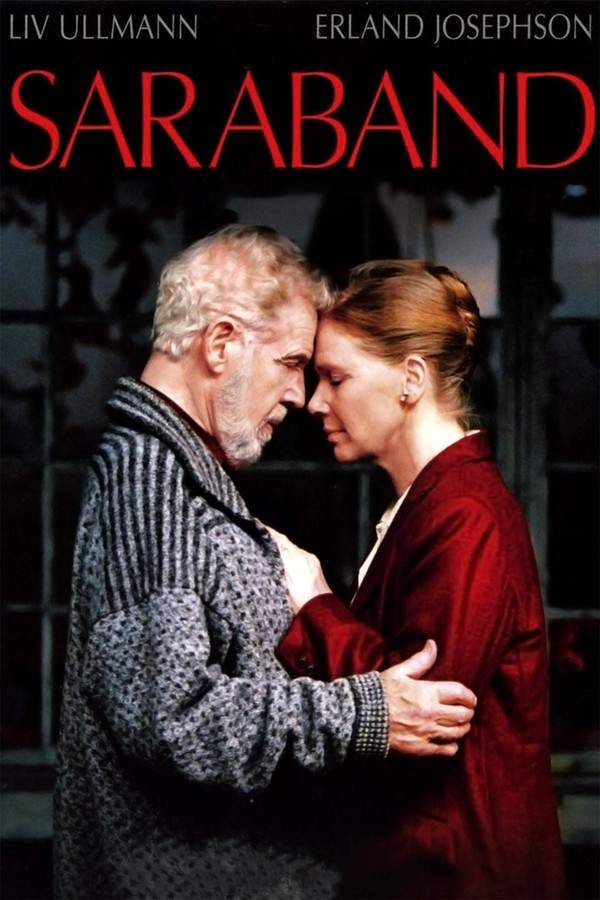
As the autumn season arrives, Marianne seeks out Johan at his secluded summer home in Dalarna, reigniting a connection they had not shared in three decades. The visit prompts a poignant reunion, forcing them to confront the passage of time and the unresolved complexities of their shared past and the love that once bound them together.
Does Saraband have end credit scenes?
No!
Saraband does not have end credit scenes. You can leave when the credits roll.
Meet the Full Cast and Actors of Saraband
Explore the complete cast of Saraband, including both lead and supporting actors. Learn who plays each character, discover their past roles and achievements, and find out what makes this ensemble cast stand out in the world of film and television.
External Links and Streaming Options
Discover where to watch Saraband online, including streaming platforms, rental options, and official sources. Compare reviews, ratings, and in-depth movie information across sites like IMDb, Wikipedia, Rotten Tomatoes or Metacritic.
Ratings and Reviews for Saraband
See how Saraband is rated across major platforms like IMDb, Metacritic, and TMDb. Compare audience scores and critic reviews to understand where Saraband stands among top-rated movies in its genre.

80
Metascore
7.9
User Score


%
TOMATOMETER

0%
User Score

7.5 /10
IMDb Rating
Take the Ultimate Saraband Movie Quiz
Challenge your knowledge of Saraband with this fun and interactive movie quiz. Test yourself on key plot points, iconic characters, hidden details, and memorable moments to see how well you really know the film.
Saraband Movie Quiz: Test your knowledge on the intricate narrative and characters of the film Saraband.
How many distinct acts are there in the movie Saraband?
Five
Eight
Ten
Twelve
Show hint
Full Plot Summary and Ending Explained for Saraband
Read the complete plot summary of Saraband, including all major events, twists, and the full ending explained in detail. Explore key characters, themes, hidden meanings, and everything you need to understand the story from beginning to end.
The film unfolds in ten acts, accompanied by a prologue and an epilogue that frame the narrative.
It begins by focusing on Marianne, who is depicted standing by a table cluttered with photographs in a brightly lit room. Addressing the audience, she picks up various pictures haphazardly laid out before her, some evoking nostalgic smiles or gentle sighs. However, her mood shifts when she lifts a photograph of her husband, prompting her to reflect on their journey together—highlighting their moments of happiness intertwined with sadness and ultimately their separation. As she reminisces, she touches on her husband’s second marriage, which also ended in disappointment, while she herself had moved on to marry again. After losing her second husband in a tragic glider accident, she expresses a longing to reconnect with her first love.
Driven by these thoughts, Marianne embarks on a journey to the countryside, seeking out her ex-husband Johan, who is the father of her daughters, Martha and Sara. At this point in Johan’s life, he is grappling with his own family challenges, brought forth by his financially struggling son, Henrik, and his granddaughter, Karin. The 19-year-old Karin becomes the center of attention as she aspires to excel in music. Henrik, hoping to buy Karin an old Fagnola cello to improve her chances at an audition for the European music conservatory, seeks an advance on his inheritance from Johan. An understanding Johan contemplates this request while taking it upon himself to reach out to the cello dealer.
While Henrik is away conducting his orchestra in Uppsala, Johan privately converses with Karin. He shares an enticing proposal from Ivan Chablov, the conductor of the St. Petersburg orchestra and a long-time friend, suggesting that Karin attend the esteemed Sibelius Academy in Helsinki. As Karin weighs her options, she stumbles upon an old letter from her late mother, Anna, addressed to Henrik a week prior to her passing. In this poignant letter, Anna urges Henrik to ease the domineering grip he has over Karin as her cello instructor. When Henrik returns from Uppsala, no longer holding a prestigious concertmaster position, he insists on performing Bach’s Cello Suites with Karin. Ultimately, she confronts him about his controlling nature and shares her plan to study in Hamburg with her friend Emma under the guidance of the renowned Claudio Abbado. In a final attempt to sway her, Henrik requests that Karin play the sarabande from Bach’s 5th Cello Suite, which she has already mastered.
Time passes, and we later find Marianne and Johan reflecting on their lives after Karin has departed for Hamburg. Marianne receives devastating news: Henrik has been hospitalized following a suicide attempt, having taken pills and inflicted harm upon himself. In a moment of emotional turmoil, Johan visits Marianne, and an intense connection leads them to share a moment of vulnerability together in bed.
As the film progresses, Marianne holds a still of the couple in bed while narrating the aftermath of their encounter. She reveals how their correspondence continued until one day when Johan became unreachable. Her thoughts then drift to Anna, leading her to recollect a significant visit to her ailing daughter, Martha, in a sanatorium. In this poignant moment, she shares the profound experience of touching her daughter for the very first time, filled with a mixture of sorrow and connection.
Uncover the Details: Timeline, Characters, Themes, and Beyond!

Coming soon on iOS and Android
The Plot Explained Mobile App
From blockbusters to hidden gems — dive into movie stories anytime, anywhere. Save your favorites, discover plots faster, and never miss a twist again.
Sign up to be the first to know when we launch. Your email stays private — always.
Discover Film Music Concerts Near You – Live Orchestras Performing Iconic Movie Soundtracks
Immerse yourself in the magic of cinema with live orchestral performances of your favorite film scores. From sweeping Hollywood blockbusters and animated classics to epic fantasy soundtracks, our curated listings connect you to upcoming film music events worldwide.
Explore concert film screenings paired with full orchestra concerts, read detailed event information, and secure your tickets for unforgettable evenings celebrating legendary composers like John Williams, Hans Zimmer, and more.


Saraband Themes and Keywords
Discover the central themes, ideas, and keywords that define the movie’s story, tone, and message. Analyze the film’s deeper meanings, genre influences, and recurring concepts.

Unlock the World of Movies with Our Comprehensive Wiki
Dive into our Movie Wiki for in-depth film encyclopedia entries, including cast biographies, production trivia, plot synopses, behind-the-scenes facts, and thematic analyses. Whether you’re researching iconic directors, exploring genre histories, or discovering hidden easter eggs, our expertly curated movie database has everything you need to fuel your cinematic passion.

Similar Movies To Saraband You Should Know About
Browse a curated list of movies similar in genre, tone, characters, or story structure. Discover new titles like the one you're watching, perfect for fans of related plots, vibes, or cinematic styles.
Quick Links: Summary, Cast, Ratings, More

What's After the Movie?
Not sure whether to stay after the credits? Find out!
Explore Our Movie Platform
New Movie Releases (2026)
Famous Movie Actors
Top Film Production Studios
Movie Plot Summaries & Endings
Major Movie Awards & Winners
Best Concert Films & Music Documentaries
Movie Collections and Curated Lists
© 2026 What's After the Movie. All rights reserved.



